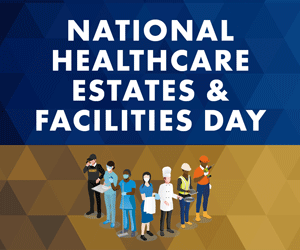Everyone’s role is going to change radically as a result of Devolution Manchester, as Paul Holt, Director of Estates & Facilities, Stockport Foundation NHS Trust, explains to Jane Renton.
Devolution Manchester is going to change our world as we know it. It will also change the role of the Estates and Facilities Manager radically. As the NHS’s Chief Executive describes it, it will chart “a path to the greatest integration and devolution of care funding since the creation of the NHS in 1948.”
Greater Manchester is to be handed control of its entire £6bn NHS budget, representing at a stroke a quarter of the region’s entire public funding. Town Hall and local health leaders will be given control over every penny spent on public health, social care, GP services, mental health, acute services, and community care.
Significantly, from an Estates and Facilities perspective that transfer of power also includes control over the NHS workforce, regulation, information and a future in which buildings and cash are shared.
“While there are, as the Health Services Journal asserts, ‘many hard questions unanswered’, there is one incontestable fact and that is that health legislators and providers are putting more emphasis on the patient,” says Paul Holt.
“We, as Estates and Facilities Managers, have an expert role to play in supporting the provision of effective, efficient and proactive integrated care by creating the modern estate of the future.”
In raising one’s collective voice, however, it is no good simply harking back to the ‘good old days’, when the mythical Estates and Facilities Director of yesteryear enjoyed a seat on the Trust’s main board. In Holt’s view, this is the wrong approach.
“Many Trusts operate using principles commonly seen in the private sector with a turnover that would put many of them in the FTSE 250,” he adds.
However, there are obvious differences. The adoption of a private sector mentality has to be balanced with a delivery imbued with unshakeable public sector ethos – the patient need being greater than the concept of profit.
“Instead of recognising the strategic role of the Trust Board, we often continue talking in language that relates to maintenance backlogs, engineering problems or the need for more money to maintain cleaning standards.”
In meeting the challenge of a changing market, Holt believes estates professionals must demonstrate their understanding of both the consequences and benefits of the changing environment.
“We should broaden our horizons recognising that Devolution Manchester presents a huge opportunity to look at the wider public sector estate.”
Through proactive actions, planning a new future based on demonstrable knowledge, motivation and an appetite for leading change, a place at the ‘top table’ is far more likely to become a reality, coming through invitation rather than some laboured perception of it being ‘a right’, he argues.
“Our client base is changing and we need to respond to that – we will be working with a wide range of customers outside our traditional remit.”
It’s a view also shared by Stockport NHS Foundation Trust’s Chief Executive Ann Barnes. “It is not about increasing power, but about increasing the health and prosperity of local people,” she insists.
Failure to respond in the right way could prove catastrophic and Holt doesn’t mince his words in this regard. “If the estates professionals don’t embrace this challenge in the right way it could mean further outsourcing, loss of control and ultimately the demise of our own jobs.”
What is happening is that a debate is emerging, entirely driven from a clinical perspective, not just as a single dimension of the NHS but as Holt explains a holistic ‘one stop service provision’.










